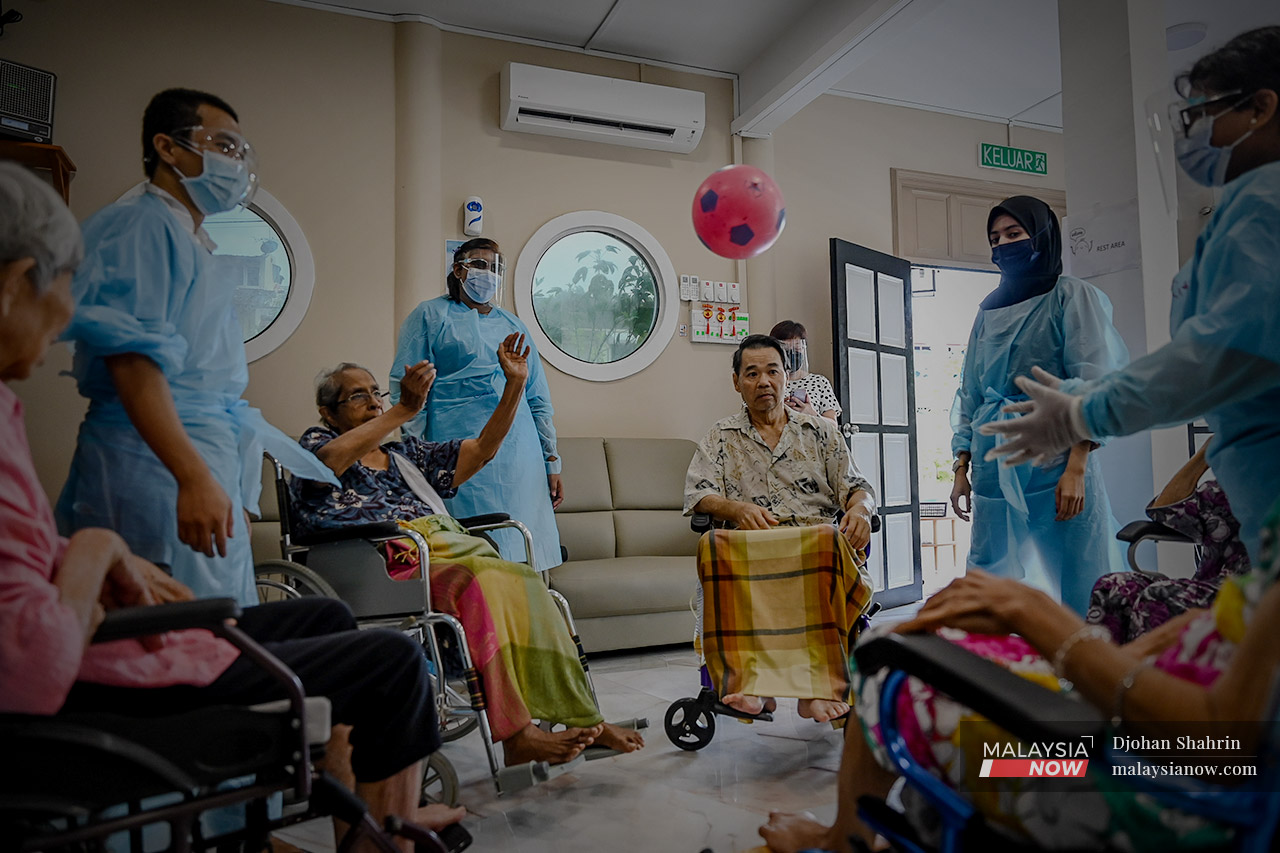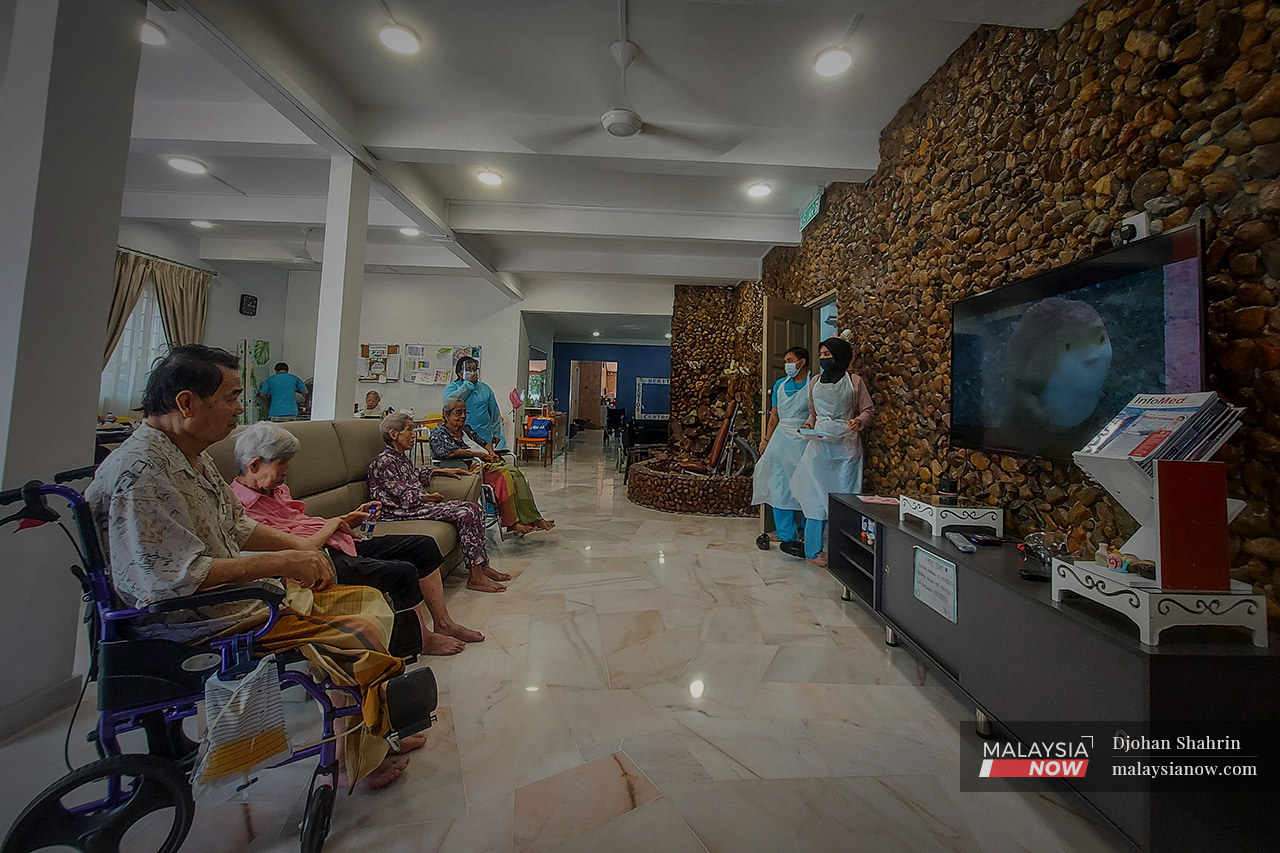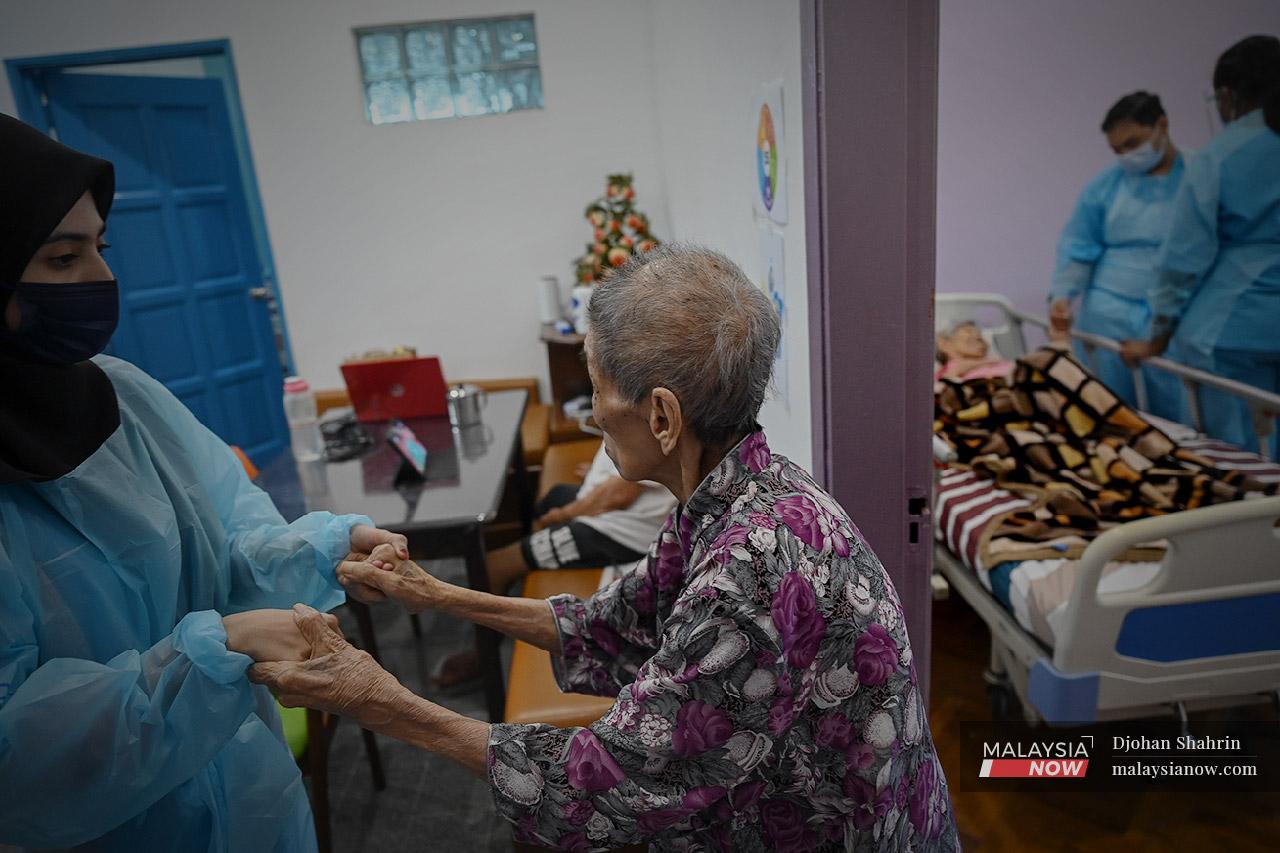Post-Covid era to see more seniors in need of care?
An ageing population coupled with the incidence of high-risk diseases and their children's return to a normal life at the office may mean a greater demand for such services.
Just In
For eight months, Madam Lee has been living in a white-painted, two-storey terrace house in Petaling Jaya, Selangor – a clean and spacious residence although technically not her own home.
She was sent there by her children who wanted her to receive professional care. At 90, she suffers from dementia along with some other health concerns that require trained nursing.
At the home, she begins each day with a shower after which she takes her medication and undergoes physical therapy. Next comes breakfast and creative activities such as colouring.
Madam Lee is one of 10 senior citizens staying at the Heritage Senior Care Centre along with several other daycare patients.
Due to Covid-19 restrictions, she has not seen her family for nearly a year now.

While the outbreak of the virus in Malaysia initially led to a drop in the number of seniors placed in residential care, those in the field believe this could change once the country begins to recover from the effects of the pandemic.
According to data from the World Bank, Malaysia’s society is expected to age at a much faster rate than some European countries.
M Mohan, director of Click2Health which runs Madam Lee’s care centre, said this would mean more senior citizens in need of professional care.
“Most of these senior citizens come with non-communicable diseases such as diabetes and hypertension.
“We also have dementia and post-surgery and post-stroke patients. That number is going to go up,” he told MalaysiaNow.

For now, families may be getting by thanks in part to the work from home policy adopted by many companies in the wake of the pandemic.
But some elderly folk require more than just their medication on time. For them, proper care is time-consuming and takes a collective effort by their children – something not many in the working middle-class can afford.
Private nursing care is an option but can be more expensive than residential care.
“Here, one nurse can take care of several patients,” Mohan said. “It’s cheaper.”
The home also has round-the-clock care for its residents, whereas private nursing has fixed hours.
With residential care, there is also the opportunity to interact with others in group activities instead of being alone at home.

Delren Terrence Douglas, president of the Residential Aged Care Operators in Malaysia, said he had already observed an uptick in the demand for residential care as the country struggles to regain its footing in the pandemic.
He said he had had five to six requests over the last two months for a place at his residential home in Sungai Petani, Kedah.
“People have accepted the reality of living with the virus,” he said. “They don’t mind sending their old folks even when we say that we are not prepared.
“This is because when the economy reopens, they need to go back to work.”
Even for those who will continue working from home, he said, it is not easy to juggle work and caring for an older person.
Like Mohan, Delren believes that the number of residential homes will only increase in the near future as more people require assistance with taking proper care of their elderly family members.
He estimates that there are some 1,700 residential homes for senior citizens across the country, including unlicensed premises.
Subscribe to our newsletter
To be updated with all the latest news and analyses daily.
